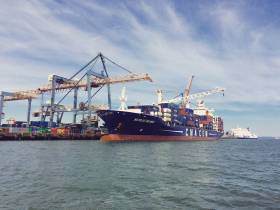Displaying items by tag: Virtual Reality
The Ocean Race Launches Virtual Reality ‘Metaverse’ Experience
The Ocean Race has launched a metaverse experience pilot with Virtual Regatta and Accenture to engage fans and businesses in a new way with the renowned global yacht race.
The companies have developed a metaverse environment that allows gamers and enthusiasts of the race’s official eSailing game, Virtual Regatta, to take part in exclusive online events, interact with other fans and get access to team stats.
“We are entering the metaverse and our collaboration with Virtual Regatta and Accenture because we are explorers and pioneers,” said Richard Brisius, race chairman of The Ocean Race. “Since 1973 we have sought new ways for people to engage with what is happening in the ocean.”
Philippe Guigné, founder and CEO of Virtual Regatta, added: “The metaverse is a new experience provided by Virtual Regatta and The Ocean Race that will allow people to follow the physical and virtual race in an all-digital race village. Gamers and enthusiasts will be able to meet each other, watch the physical and digital event, and much more. This virtual reality setup will further enhance the fan experience.”
Accenture, The Ocean Race and Virtual Regatta are also providing e-commerce opportunities for brands to showcase their digital goods and services in the metaverse space, such as active apparel retailer and official clothing partner of the race Helly Hansen.
Additionally, The Ocean Race’s mission to protect the seas is incorporated in the metaverse strategy and content. The Racing with Purpose tent, named after the organisation’s sustainability programme, is an interactive space where visitors can explore how the race supports this goal and how they can get involved.
The area features a science station, which highlights how race teams are gathering vital data about the ocean, and a learning corner where visitors can discover and download learning programmes to inspire youth between 6–16 years old to protect the seas.
Also showcased is the Blue Voice campaign, which gives an opportunity for visitors to show their support by signing the petition for ocean rights.
“The metaverse will usher in a new era of our digital lives, overcoming the limitations of the physical world and creating new opportunities to immerse in issues and connect as communities,” said David Treat, who is the co-lead of Accenture’s Metaverse Continuum business group. “Our collaboration with The Ocean Race and Virtual Regatta is helping reinvent how people engage with the race and protect our oceans while creating value for all stakeholders.”
Brisius added: “Purpose drives The Ocean Race. Protecting our racetrack and restoring the health of the ocean is vital, and the metaverse can be a fantastic tool for helping give the ocean a voice. It is even more important for us to continue to explore new ways to engage and educate.
“We recognise that it is the young generation where we need to focus our efforts to build ocean literacy, as the metaverse is likely to attract many young users. In addition, we believe in the merits of Web 3.0 with a metaverse which will represent a fair internet controlled by the users, compared to the current Web 2.0 which is centralised and run by a few entities.”
More than 200,000 eSailing players are expected to take part in the Virtual Regatta Offshore and Inshore versions of the race. There are seven IMOCA legs and three VO65 Sprint stages on Virtual Regatta Offshore, with new features for an expanded virtual experience, mimicking the real race the crews are undertaking.
The Ocean Race metaverse pilot experience, in collaboration with Virtual Regatta and Accenture, will be available to users on a limited basis starting with the last week of Leg 3 of the race from Cape Town to Itajaí, Brazil. Request your metaverse access code HERE.
A real-time demonstration in Belfast Harbour was staged to highlight the benefits 5G can deliver to business and industry - including how its cranes can be inspected and maintained remotely.
In a first for the UK, the Irish News writes, that the demonstrations, performed over BT's public 5G network, showed two 5G-enabled applications that are being explored by the harbour as part of its vision for creating a “smart port” and an iconic waterfront for the city.
One demonstration showed a member of Belfast Harbour's operations team wearing an augmented reality headset connected to a 5G device.
They were able to inspect one of the harbour's cranes and receive step-by-step maintenance guidance and remote support through video collaboration with a remote expert, via an application server in the cloud.
For more more read here from the newspaper.





























































